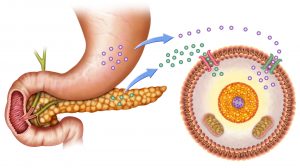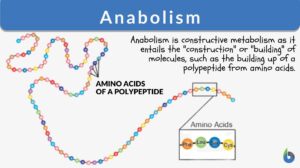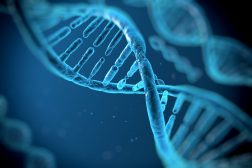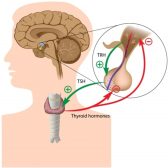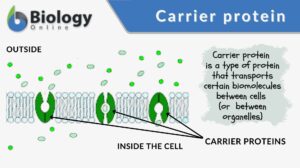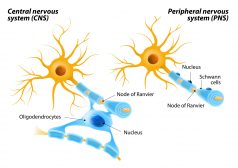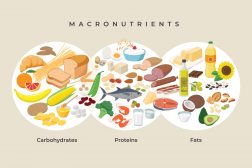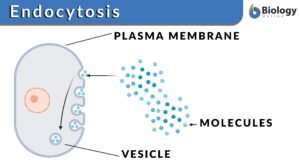Search Results for: glucagon
Homeostasis
Homeostasis is the tendency not to stray from the range of favorable or ideal internal conditions. Such conditions must be... Read More
Sugar Homeostasis
Blood Sugar Regulation As described in Cell Biology tutorials, the body requires volumes of glucose in order to create ATP.... Read More
Glycolysis
What is Glycolysis and Why is it Important? Glycolysis is a metabolic pathway by which the 6-carbon molecule of glucose is... Read More
Regulation of Organic Metabolism, Growth and Energy Balance
Organic Metabolism Events of Absorptive and Post-absorptive States. The absorptive state is the period during which... Read More
Islets of Langerhans
Definition Cell clusters in the pancreas that form the endocrine part of that organ; secrete insulin and other hormones.... Read More
Catabolism
Catabolism Definition Catabolism is the branch of the metabolic process that breaks down complex, big molecules into... Read More
Carbohydrate
Carbohydrate Definition A biomolecule refers to any molecule that is produced by living organisms. As such, most of them... Read More
Genetic Control – On and Off Genes
Reviewed by: Mary Anne Clark, Ph.D.This lesson looks at the various factors involved that affect growth and... Read More
Glycogenolysis
Definition noun The metabolic process of breaking down stored glycogen in liver into glucose subunits (i.e.... Read More
Saccharide
Saccharide Definition What is a saccharide molecule? A saccharide is the unit structure of carbohydrates. In biochemistry,... Read More
An introduction to Homeostasis
Researched and Written by Jonjo MinnsSubmitted to biologyonline.com on February 25, 2009.Published in biologyonline.com... Read More
Hormone Production
Reviewed by: Mary Anne Clark, Ph.D.Hormones are chemical messengers produced by glands in the endocrine system.... Read More
Antagonistic effect
Definition noun The effect produced by the contrasting actions of two (or more) chemical groups Supplement An example of... Read More
Equilibrium
Equilibrium Definition In Biology Equilibrium refers to the state of balance and stability. In biology, equilibrium is... Read More
Phosphorylation
Phosphorylation Definition We can define phosphorylation as a biochemical process in which a phosphate molecule is added to... Read More
Adenosine monophosphate
Definition noun plural: adenosine monophosphates (biochemistry) A nucleotide composed of adenine, ribose and a phosphate... Read More
Cyclic adenosine monophosphate
Definition noun plural: cyclic adenosine monophosphates (biochemistry) A cyclic form of adenosine monophosphate that... Read More
Carrier protein
Carrier protein is a type of cell membrane protein involved in facilitated diffusion and active transport of substances out... Read More
Pancreatic juice
Definition noun The transparent fluid secreted by the pancreas composed mainly of water, electrolytes, and... Read More
Adenine nucleotide
Definition noun plural: adenine nucleotides A nucleotide wherein the nucleobase is adenine Details Overview A nucleotide... Read More
The Central Nervous System
Myelin Sheath Myelin is a substance that forms the myelin sheath associated with nerve cells. This sheath is a layer of... Read More
A Balanced Diet – Carbohydrates and Fat
Alongside the numerous vitamins that are required as part of a healthy diet, we must also eat food containing a variety of... Read More
Endocytosis
Endocytosis Definition What is endocytosis in biology? Endocytosis is a cellular process by which a cell internalizes any... Read More
Positive feedback
Positive Feedback Definition Each mechanism of the body like temperature, blood pressure, and levels of specific nutrients... Read More


